Weed Control - Help?
serwin
19 years ago
Related Stories

EDIBLE GARDENSNatural Ways to Get Rid of Weeds in Your Garden
Use these techniques to help prevent the spread of weeds and to learn about your soil
Full Story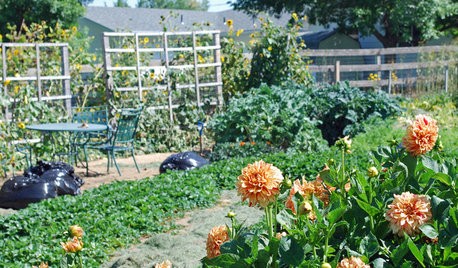
GARDENING GUIDESTackle Weeds the Natural Way
Instead of dousing your yard with chemicals to wipe out weeds, let time and nature work their magic via smothering and solarization
Full Story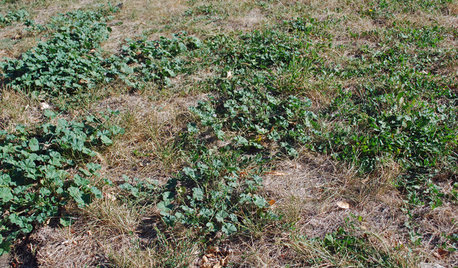
GARDENING GUIDESWeed War: When and How to Use Chemical Herbicides
Before you spray, arm yourself with knowledge about which weed killers — natural or synthetic — are right for your yard
Full Story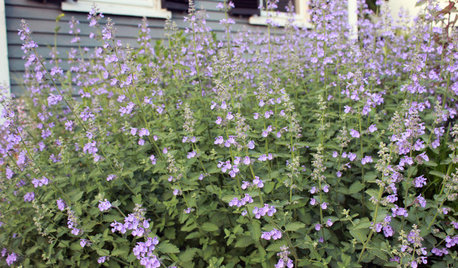
GARDENING GUIDES5 Weed-Smothering Ground Covers
Let these landscape plants do the dirty work of choking out weeds while you sit back and enjoy the view
Full Story
GARDENING GUIDESLet's Weed Out 4 Native Plant Myths
Plant wisely for a garden that supports pollinators and requires less work
Full Story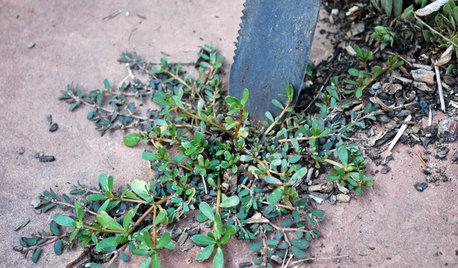
GARDENING GUIDES5 Ways to Naturally Win the Weed War
Show irksome weeds no mercy with these tricks for combating them sans chemicals
Full Story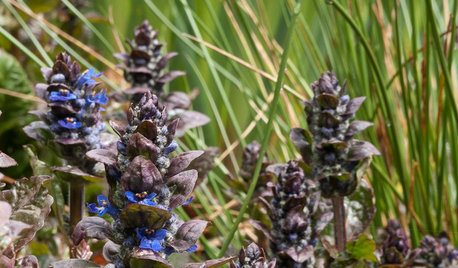
GARDENING GUIDESGreat Design Plant: Bugle Weed, a Quick Ground Cover
It’s highly adaptable, suppresses weeds, reduces erosion and provide weeks of bright flowers. Just watch for invasiveness
Full Story
HOUZZ TOURSHouzz Tour: From Overgrown Weeds to Picturesque Farmhouse Expanse
This once-neglected 100-acre South Carolina site now features a lake, a wood-filled farmhouse and a far-reaching view
Full Story
ORGANIZINGDo It for the Kids! A Few Routines Help a Home Run More Smoothly
Not a Naturally Organized person? These tips can help you tackle the onslaught of papers, meals, laundry — and even help you find your keys
Full Story
PETS6 Ways to Help Your Dog and Landscape Play Nicely Together
Keep your prized plantings intact and your dog happy too, with this wisdom from an expert gardener and dog guardian
Full StorySponsored
Custom Craftsmanship & Construction Solutions in Franklin County






gooseberry_guy
randy41_1
Related Professionals
Chattanooga Landscape Architects & Landscape Designers · Foothill Ranch Landscape Architects & Landscape Designers · Hyattsville Landscape Architects & Landscape Designers · Suffern Landscape Architects & Landscape Designers · Beverly Hills Landscape Contractors · Broadlands Landscape Contractors · Canton Landscape Contractors · Hawaii Landscape Contractors · Hicksville Landscape Contractors · Methuen Landscape Contractors · Wallingford Landscape Contractors · Shenandoah Landscape Contractors · Chatsworth Solar Energy Systems · Sun Prairie Solar Energy Systems · Homer Glen Solar Energy Systemsgponder
dan_denise
fancifowl
serwinOriginal Author
gooseberry_guy
dickscovered
gooseberry_guy
randy41_1
dickscovered
ohiorganic
skagit_goat_man_
jumpinjuniper
mind_harvest
markincalgary
Jeanne_in_Idaho
hmeadq